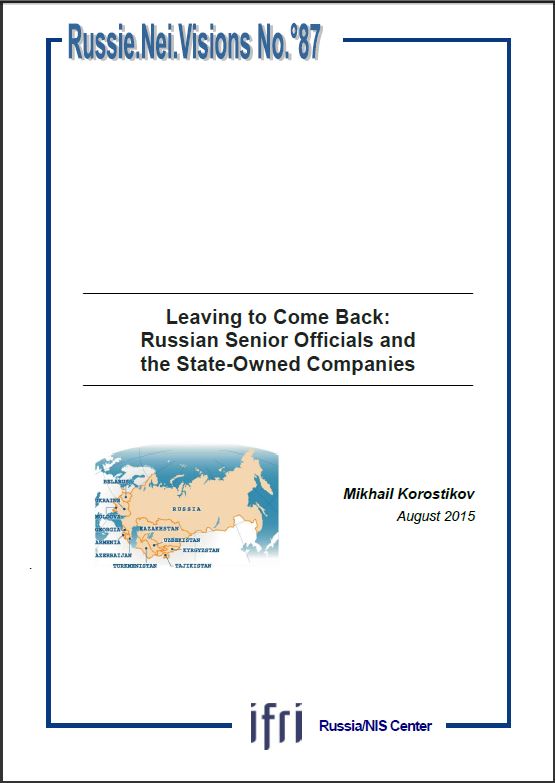Leaving to Come Back: Russian Senior Officials and the State-Owned Companies

When Dmitry Medvedev announced in late 2014 that the presence of ministers and other officials should be sharply increased on the boards of public companies, observers were surprised, considering that four years before the former President started a campaign to remove them from the very same structures.
This change of trend is symbolic and finally closes the debate about state ownership management in Russia. In the crisis context in early 2014, the Kremlin decided to make a bet on mobilizing all resources under its control by sacrificing the program aimed at increasing the transparency and openness of management of Russia's state companies. The result of this has been the gradual replacement of independent businessmen on the supervisory boards of state-owned companies with government officials—both members of “Putin’s clan” and the chiefs of other sectors of government-owned industries.
Download the full analysis
This page contains only a summary of our work. If you would like to have access to all the information from our research on the subject, you can download the full version in PDF format.
Leaving to Come Back: Russian Senior Officials and the State-Owned Companies
Related centers and programs
Discover our other research centers and programsFind out more
Discover all our analysesRussia's Asia Strategy: Bolstering the Eagle's Eastern Wing
Among Russia’s strategic priorities, Asia traditionally played a secondary role compared to the West. In the mid-1990s, then Foreign Minister Yevgeny Primakov initiated a rapprochement with China and India. Then, in 2014, deteriorating relations between Russia and the West prompted Moscow to begin its “great pivot to the East”.
Kazakhstan After the Double Shock of 2022: Political, Economic and Military Consequences
The year 2022 represented a dual shock for Kazakhstan. In January, the country faced its most severe political crisis since independence, followed in February by Russia’s full-scale invasion of Ukraine, which cast uncertainty over the borders of post-Soviet states. These consecutive crises profoundly shaped Kazakhstan’s domestic and foreign policy.

How the Russian Army Changed its Concept of War, 1993-2022
The traditional and high-intensity war that has occurred in Ukraine since Russia decided to invade raises a key issue: did post-soviet Russian strategic thought really prepare Russia for waging this war?
Russia's Nuclear Deterrence Put to the Test by the War in Ukraine
From the outset of its “special military operation” (SVO) against Ukraine on February 24, 2022, Russia, which possesses one of the world’s largest nuclear arsenals, has adopted aggressive deterrence measures and a resolutely menacing rhetorical stance.









